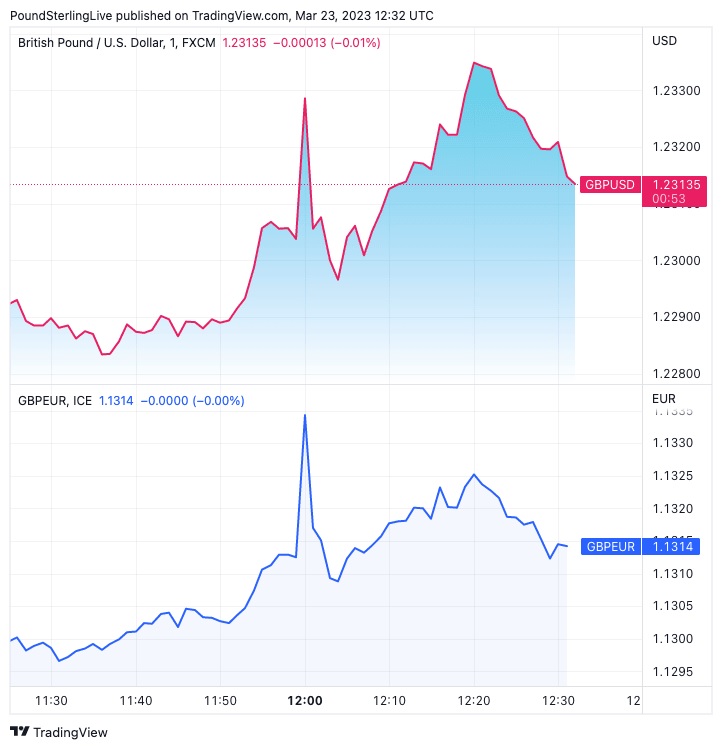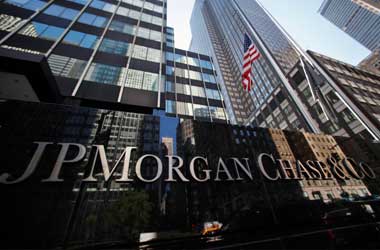 Some analysts anticipate future gains for the British pound in the aftermath of the Bank of England’s most recent interest rate increase. As anticipated, the Bank raised interest rates by 25 basis points and stated that future rate increases would depend on incoming data, reiterating a message from February.
Some analysts anticipate future gains for the British pound in the aftermath of the Bank of England’s most recent interest rate increase. As anticipated, the Bank raised interest rates by 25 basis points and stated that future rate increases would depend on incoming data, reiterating a message from February.
The greatest downside risk for the pound was a scenario in which the Bank of England raised interest rates but signaled it was now prepared to pause, a result that would have compelled markets to wager aggressively on interest rate cuts later in the year. The Bank’s decision to repeat its guidance from February prevented this repricing, and as a result, Pound exchange rates were relatively well supported.
In stark contrast to previous policy decisions, which were met with concerted selling pressure, the pound’s stability provided a solid foundation for future gains. Following the Bank’s decision, “Pound crosses rose across the board,” said Fawad Razaqzada, analyst at City Index.
The British pound is now one of the best-performing currencies of 2023, and it entered the Bank decision day with some wind in its sails. “Sterling had also fared better than some of the other currencies affected by the banking sector turmoil due to the perception that the United Kingdom’s financial services are more insulated from the crisis,” Razaqzada explains.
The Pound to Euro exchange rate lacks direction around 1.13, as the Bank of England’s guidance was never adequate to match the European Central Bank’s current guidance for at least another 50bp of increases by mid-year. The Pound to Dollar exchange rate appears more favourable at 1.2324, with markets anticipating a series of US interest rate decreases in the second half of 2023, which could impact on the Dollar.
In a review of the BoE’s decision, Derek Halpenny, Head of Research, Global Markets EMEA at MUFG Bank Ltd, says, “Given the broader weakening of the dollar after the FOMC, we see scope for further gains in GBP/USD in the short term.” Halpenny adds that the pound is becoming less volatile, which “could permit the recent trend to be sustained in the future” Whether the Bank raises rates again will have a major impact on the performance of the Pound over the next week.
According to the rule of thumb, additional rate increases will support British bond yields and the pound. A delay, however, could accelerate the rise of interest rates in the Eurozone and the United States, bolstering the Euro and the Dollar relative to the Pound. Given that the Bank of England is likely to complete its tightening cycle before its rivals (ECB, Fed), we maintain a neutral GBP outlook, according to David Alexander Meier, an economic researcher at Julius Baer.
As of Thursday’s announcement, the markets were pricing in an additional 31bp Bank Rate increase by August, with a quarter-point increase anticipated for June. This suggests that there is a near 50/50 chance of another increase in May. This market division is reflected in the analyst community, with research notes and commentary arriving at Pound Sterling Live’s editorial desk exposing a distinct divide between economists anticipating another rate rise and those anticipating a hiatus.
Bernd Weidensteiner, senior economist at Commerzbank, says, “We see an underlying inflation problem and continue to anticipate a final 25 basis point rate hike at the May meeting.” Samuel Tombs, Chief UK Economist at Pantheon Macroeconomics, characterises the Bank’s decision to raise rates as “overkill” in a single word. “There is a compelling case for expecting the Bank Rate to crest at 4.25 percent. “Numerous indicators point to a sharp decline in inflation in the near future,” he adds. Ultimately, the victorious camp will be determined by the incoming data, as this will determine the next measures taken by the Bank of England and ECB.

Consequently, the Pound may enter a period of stable trading against the Euro as markets await April’s data releases. The April 18 report on the labour market will be crucial for GBP trading in the coming weeks, as wage pressures will be closely monitored. Any increase in unemployment or faster-than-anticipated decline in wage growth could result in the markets pricing out another increase. The British Pound could struggle in such a situation. The next significant release will be the inflation report for April 19th.
The markets will be especially interested in the dynamics of inflation in the services sector. The Bank highlighted on Thursday that services CPI inflation was 6.6% in February, 0.1% less than anticipated in the February Monetary Policy Report. Nick Rees, FX Market Analyst at Monex Europe, explains, “This is one of the key indicators that core members have identified in recent communications as central to their thinking on the inflationary dynamics, with weaker-than-expected numbers indicating faster-than-expected progress.”
If headline inflation or a combination of services and core inflation falls short of expectations, the market will likely reduce its expectations for a future rate rise. This may cause the Pound to fall in mid-April. However, the pound continues to trade with a more optimistic tone than in previous months, indicating that downside risks posed by the conclusion of the Bank’s increasing cycle are significantly reduced.
Therefore, the 2023 lows against the Euro and Dollar are likely to hold. Upside potential against the Dollar is greater than against the Euro until markets become increasingly persuaded that the ECB’s cycle is nearing its conclusion.



